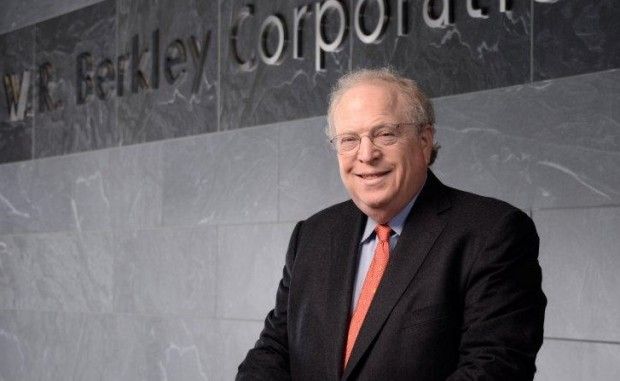During a discussion of the growing risks facing property/casualty insurers at conference recently, William R. Berkley suggested that one risk—social media—is changing the way carriers deal with customers, and challenging even the best-intentioned companies.
Stopping short of saying the risk was completely unmanageable, the chairman and chief executive officer of W.R. Berkley Corp., gave an example to illustrate how inaccurate customers statements made from social media “soapboxes” can hurt P/C insurers and brokers alike.
In particular, he referred to social media accounts of retailers who were impacted by the Boston Marathon bombing, in which the store owners said they were never offered terrorist coverage.
“That was because none of the brokers wanted to make any additional commission,” Berkley said facetiously. “They weren’t interested in saying you might want to buy terrorism coverage. You know that’s true,” he said incredulously.
“That’s the problem with social media—all those people who go online and say, ‘Our broker was Aon and they never offered this,'” he said, selecting Aon for the purposes of the example because Greg Case, president and CEO of Aon plc, was another participant on the conference panel from which Berkley delivered his remarks at the Standard & Poor’s Annual Insurance conference in New York.
“The real frustration is that he [Case] has a card that that guy [retailer] signed, which says we offered you terrorism coverage and you signed that you didn’t want it. But once that guy puts that out on his blog, you’re dead,” Berkley said. “It’s there and it hurts you.”
The carrier executive believes the nature of social media is driving “a complete change in the process of claims settlement, the discussion of risk,” and customer relationships generally.
“There is no advantage for the company any longer. Even if you want to do things right, you can have someone who views things totally incorrectly. But they have the soapbox. They have the ability to influence the outcome.”
Berkley said there are pluses and minuses evolving from customers’ use of social media. Carriers don’t always do what they should, he said, suggesting a potentially positive impact of customer feedback through social media.
But there are minuses, too. “Now, Jane Smith sitting in Osh Kosh has that soapbox, and it just changes how you have to deal with things, how you have to settle things.”
“Those are the kinds of things that we have to deal with in this new world,” he said.
Berkley’s remarks about social media were part of a larger discussion about ever-changing emerging risks and increasing risk volatility that insurer analytics may not be capturing. (Related article, “Is P/C Industry Overcapitalized? Maybe Not, Berkley Says,” will be published next week.)
Leading up to the risk discussion, Kevin Ahearn, S&P managing director and analytical manager, who was moderating the panel, teed up an audience poll asking the carrier executives and investment analysts in attendance, which emerging risks they were more concerned about.
The responses broke down as follows:
- Geopolitical/terrorism: 11 percent
- Cyber-terrorism: 24 percent
- Unmodeled natural perils: 31 percent
- All of the above: 32 percent
- Other: 3 percent
While the list did not include social media risk among the choices, terrorism risk—in two forms—garnered more than one-third of the votes.
TRIA Renewal Possible
On the topic of terrorism risk, Berkley addressed the question of whether the Terrorism Risk Insurance Act is likely to be renewed, putting the odds slightly in favor of renewal.
“There’s not great enthusiasm in Washington to renew TRIA,” he said, adding, however, that improving housing numbers and an improving construction industry could put additional pressure on lawmakers to renew.
“I would say, today, it’s a 60/40 [likelihood] at best to get extended, and certainly not expanded,” Berkley predicted.
TRIA, which was initially enacted in 2002, and amended by the Terrorism Risk Insurance Revision and Extension Act of 2005 and the Terrorism Risk Insurance Program Reauthorization Act of 2007 (TRIPRA) (collectively, including both amendments, TRIA), is currently set to expire on Dec. 31, 2014.
“Everyone knows we have an issue. Everyone knows there’s a problem, but the resolution even of the simplest-to-solve problems is bound up in ideology,” Berkley observed, noting that there is “a group of people who think TRIA is the government stepping into the private sector.”
Aon’s Case recalled that he testified in Congress in 2006 about renewal back then, repeating the observation he shared with federal lawmakers. “The point I made is that this is not an [insurance] industry issue,” but an economic one, Case said.
Noting that he was seated beside the CEO of hotel chain at the time of his testimony, Case recalled testifying that if TRIA wasn’t passed in some form, then that CEO would stop building hotels.





















 Teens’ First Year on the Road Most Deadly
Teens’ First Year on the Road Most Deadly  Reinsurance Program Could Wipe Out Need for Calif. FAIR Plan: Legal Exec
Reinsurance Program Could Wipe Out Need for Calif. FAIR Plan: Legal Exec  The Future of HR Is AI
The Future of HR Is AI  Large Scale Cargo Ring Busted in LA, $5M Recovered
Large Scale Cargo Ring Busted in LA, $5M Recovered 







